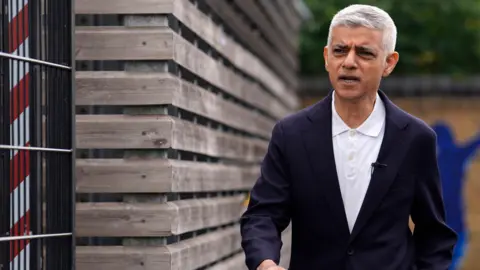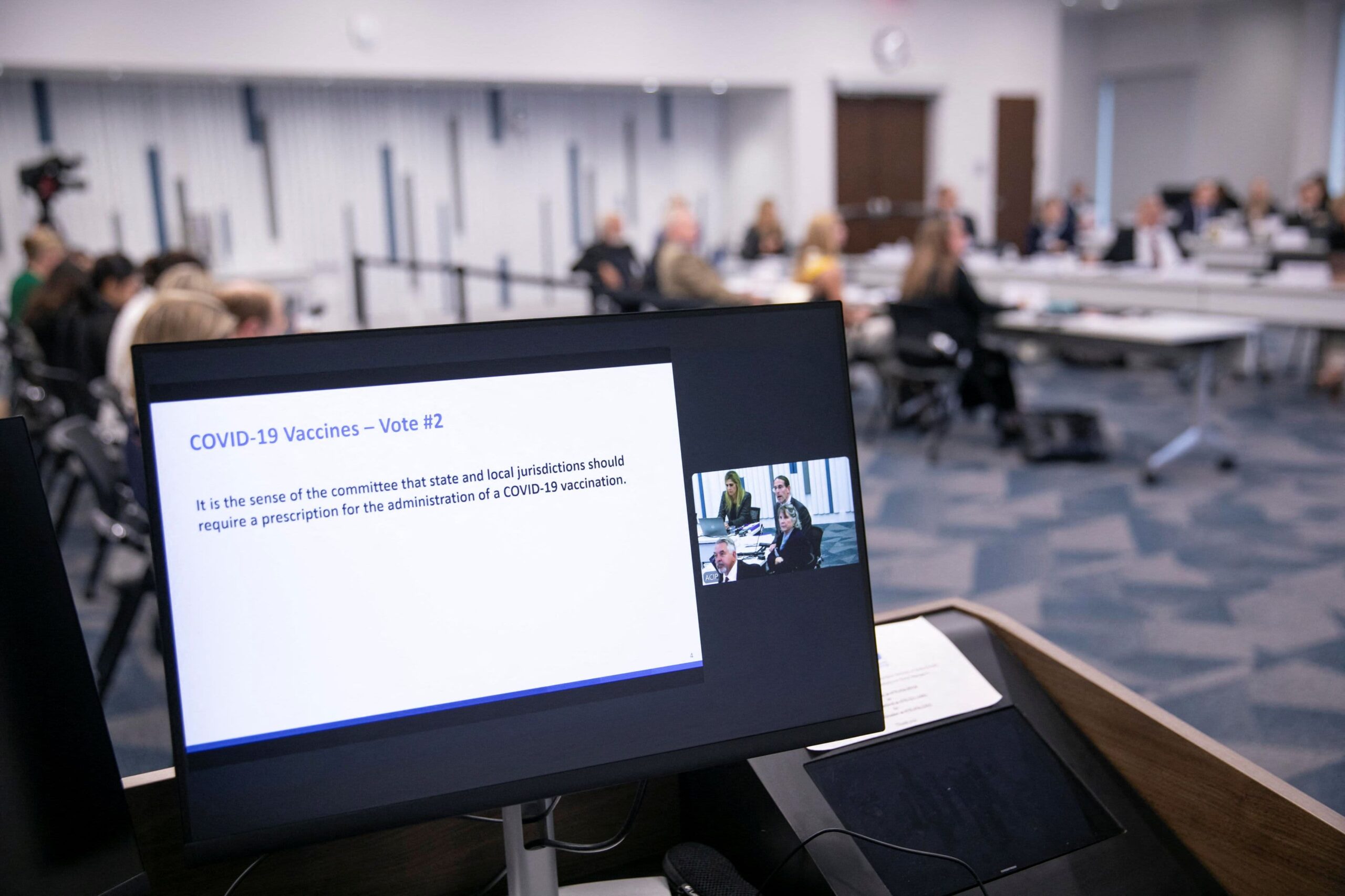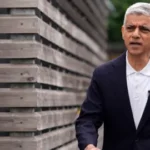New recommendations last week from an influential vaccine panel handpicked by Health and Human Services Secretary Robert F. Kennedy Jr. broke with long-standing U.S. precedent on Covid shots and childhood immunization.
The changes by the group, the Advisory Committee on Immunization Practices, or ACIP, could complicate access in some states and add to public confusion around U.S. vaccine policy.
Still, several health experts say Americans can take steps to try to secure the vaccines they or their children want or need. For some patients in certain states, access and coverage may not change much at all.
During a meeting in Atlanta last week, ACIP weakened Covid shot recommendations; voted against a combination jab against measles, mumps, rubella and chickenpox, or MMRV, for children under the age of 4; and indefinitely postponed a vote on whether to change its advisory around the hepatitis B vaccine administered at birth.
The Centers for Disease Control and Prevention, whose director the Trump administration ousted in August, still needs to sign off on the recommendations. The agency typically adopts the guidance of ACIP, which issues recommendations on who should receive certain shots and which vaccines insurers must cover at no cost.
“They didn’t physically take the vaccines away, but they made it more confusing, they made it more bureaucratic, and by doing that, it disincentivizes people from getting vaccinated,” said Dr. Amesh Adalja, senior scholar at the Johns Hopkins Center for Health Security. “It makes it harder for some people to get vaccinated. It creates more friction.”
Two regional health alliances spanning several states are issuing broader vaccine recommendations than the federal government, and many states have signed directives that aim to preserve Covid shot access. At the same time, several major insurance plans have pledged to continue covering vaccines based on the panel’s previous guidance issued by former members.
For patients uncertain about the changes, experts recommend turning to trusted health-care providers or vetted medical groups that have issued their own vaccine recommendations.
Many of the ACIP members emphasized concerns about vaccine side effects, raising doubts about shots long-proven safe and effective. That’s no surprise: Kennedy purged the committee in June and named 12 new members, many of whom have long criticized vaccines.
The chaotic two-day meeting followed previous steps by Kennedy to limit access to vaccines, including the CDC’s decision to drop Covid shot recommendations for healthy kids and pregnant women, and the Food and Drug Administration’s limits on who can get new Covid jabs.
If you’re concerned about access to shots against Covid, MMRV and hepatitis B, here’s the latest on those vaccines and what you can do to get them.
Should I get a Covid vaccine?
The answer should be yes if you’re at high risk of severe illness from Covid, according to health experts and major medical organizations.
Meanwhile, some experts said those at low risk should at least consider getting a Covid shot, or can make their decision based on consultation with a provider.
ACIP advised that people 6 months and up receive vaccines based on “shared clinical decision-making,” a choice made between a health-care provider and a patient or their guardian. The group also voted to emphasize that for those under 65, the Covid vaccine is most beneficial for people at high risk of severe illness from the disease.
In other words, the panel is recommending that everyone consult a health-care provider when deciding whether to receive a shot.
But some health experts said the panel should have recommended that all people at high risk of severe illness from Covid get the shot. That includes adults ages 65 and above; those under that age with at least one condition that puts them at high risk, such as cancer, obesity or chronic kidney disease; pregnant women; and children under the age of 2.
Vaccination is paramount for those groups, as it helps prevent severe Covid and the risk of hospitalization or death due to the virus.
“Their recommendation is treating Covid as if it’s the same for everybody irrespective of risk, and that’s the wrong way to think about it,” said Johns Hopkins’ Adalja. “Any high-risk group should always stay up to date with the vaccine.”
That view largely aligns with guidance from professional medical organizations:
- The American Academy of Pediatrics recommends that all children ages 6 months through 23 months get an updated shot, along with older children ages 2 years through 18 years in certain risk groups or who are in close contact with people at high risk.
- The American College of Obstetricians and Gynecologists recommends that patients receive an updated Covid vaccine at any point during pregnancy, when planning to become pregnant, in the postpartum period or when lactating.
- The American Academy of Family Physicians recommends that all adults 19 years and older receive an updated shot, with a particular emphasis on those at high risk or people who have never received a Covid vaccine.
Two regional health alliances comprised of several states – The Northeast Public Health Collaborative and the West Coast Health Alliance – have based their Covid vaccine recommendations on the guidance from those three organizations.
Adalja said it is reasonable for a person at low risk of severe illness to rely on a conversation with a provider when determining whether to get a Covid vaccine.
Meanwhile, Richard Dang, an associate professor of clinical pharmacy at the University of Southern California, said he recommends everyone consider getting a Covid shot regardless of their risk level. Dang is also a liaison member representing the American Pharmacists Association in the Covid vaccine work group of ACIP.
Apart from reducing the severity of illness from the virus, some data shows vaccines can help prevent some symptoms of long Covid and other complications that people develop after an infection, according to Dang.
Healthy individuals should also think about family and others around them who may be at higher risk of severe illness, said Dr. Pamela Rockwell, a clinical professor of family medicine at the University of Michigan.
“Vaccinating yourself may potentially save another life by not potentially infecting them with a vaccine-preventable disease,” Rockwell said.
Several medical experts have emphasized the importance of vaccines as the U.S. heads into the fall and winter, when infectious diseases, particularly respiratory viruses like Covid, spread more easily. While hospitalizations and deaths from Covid have decreased significantly from previous years, the virus is still spreading.
How is Covid shot access changing?
Access to Covid vaccines will largely hinge on the state a patient lives in, so health experts recommend Americans check with their providers, local health departments or nearby pharmacies about how they can get a shot and whether they need to meet any new requirements.
Adalja said the easiest way to access a shot may be to go to a doctor’s office. But the vast majority of Americans get their vaccines from pharmacies. Pharmacy rules vary by state, and not all states currently allow pharmacists to give shots outside of the CDC recommended population without a prescription.
Access will likely be unchanged in states within the two regional health alliances. The Northeast Public Health Collaborative is made up of New Jersey, New York state, Pennsylvania, Massachusetts, Connecticut, Maine, Rhode Island, Delaware, Maryland, Vermont and New York City. Meanwhile, the West Coast Health Alliance has California, Washington, Oregon and Hawaii.
In many of those states, governors had previously issued executive orders to preserve Covid vaccine access – though directives have varied. For example, in California, a new law allows pharmacists to independently prescribe and administer the shot as long as the state health department recommends it. The law also requires insurance plans to cover the vaccines the state endorses.
But as of Sept. 23, pharmacists in Florida are not allowed to provide vaccinations without a prescription from a health-care provider like a physician.
“There are some states where the pharmacist may be skittish to give out the Covid vaccine, and that may impact access for some people,” University of Michigan’s Rockwell said.
In a statement Monday, CVS said it currently offers the updated Covid vaccine to patients with an authorized prescription in the District of Columbia, Florida, Georgia, Louisiana, Utah and West Virginia. CVS said it will be able to offer the Covid shot without a prescription in those states after the CDC approves ACIP’s new recommendations around the vaccine.
The company said it already offers Covid vaccines without a prescription requirement in all other states.
In a separate statement, Walgreens said it continues to administer the shot without prescriptions in the “vast majority” of states. But the company will offer the updated Covid vaccines at locations to people ages 3 and older, no prescription required, after the CDC adopts the panel’s recommendation.
Meanwhile, insurance coverage for Covid vaccines should largely remain the same for many children and adults.
ACIP’s recommendation allows for coverage “through all payment mechanisms,” according to an HHS release. That includes the Vaccines for Children Program, Children’s Health Insurance Program, Medicaid, Medicare and plans through the federal health insurance marketplace established by the Affordable Care Act.
One major health insurance group last week said its member plans will cover all vaccines through 2026 based on ACIP recommendations in place as of Sept. 1 — before the changes made by the new slate of members.
Member plans of the group, America’s Health Insurance Plans, collectively provide coverage and services to more than 200 million Americans. That includes more than a dozen Blue Cross Blue Shield plans, Centene, CVS‘ Aetna, Elevance Health, Humana, Kaiser Permanente, Molina and Cigna.
But the group doesn’t cover everyone, so experts recommend that patients contact their plans about the Covid shot. For example, UnitedHealthcare, the country’s largest private health insurer, is not a member of the group.
Can my child take the MMRV vaccine?
If you have a child under 4, it may be more difficult for them to access the combination MMRV vaccine as their first dose. Children older than 4 shouldn’t have an issue getting that vaccine.
On Thursday, ACIP voted to no longer recommend the combination MMRV shot for children under age 4. Instead, the committee said young children should receive one vaccine for chickenpox and a different shot known as MMR that inoculates against measles, mumps and rubella.
The CDC still recommends two doses of measles-containing vaccine for children, starting with the first dose at age 12 months to 15 months, and a second at age 4 years to 6 years. The agency previously recommended that children under 4 take the separate MMR shot and chickenpox vaccine or – if families and physicians have a preference – the MMRV vaccine for their first dose.
ACIP’s vote does not affect children older than 4, meaning that they can still take the MMRV shot as their second dose.
Much of the panel’s discussion last week focused on the slightly increased risk of seizures accompanied by fever in young children who have received the first dose of the combined MMRV vaccine.
But Dr. Dean Blumberg, chief of the division of pediatric infectious diseases at UC Davis Health, said that young children can get those so-called febrile seizures from anything that causes a fever, such as an ear infection or a cold. He called it “disappointing to restrict choices for parents” by recommending against the MMRV shot for younger kids.
But Blumberg also noted that the vote may not make much of a difference for some parents.
About 85% of children currently get the MMR and chickenpox vaccines separately for their first dose, according to data collected by the CDC. About 15% of kids get a single dose of the combination MMRV vaccine.
“It made no sense that they would actually need to take a vote on this because there was nothing new to say about it. The majority of people were getting the shots separately anyway,” said Johns Hopkins’ Adalja. “But when ACIP can get everybody revved up about a combination vaccine and take some kind of vote like that, it scores points with the anti-vaccine movement – even though it’s really irrelevant to the practice of medicine.”
During a briefing on Monday, President Donald Trump suggested that the MMR vaccine should be separated into three shots, alleging that “it seems to be that when you mix them, there could be a problem.”
The MMR shot has long been safe and effective, and is credited with saving hundreds of thousands of lives in the U.S. Vaccines that protect against just one of the three diseases are also not available in the U.S. due to widespread adoption of the combined shot. Separating the shot into three could hurt uptake, as it could require children to make multiple trips to the doctor’s office rather than one.
The U.S. has already logged the most measles cases this year since the disease was declared eliminated in the country more than two decades ago.
Can my baby take the hepatitis B shot?
The short answer is, yes.
ACIP postponed a vote on whether to delay the first dose of the hepatitis B shot from birth to at least one month for most babies born in the U.S.
The decision means that the committee’s current recommendation – that all infants receive a hepatitis B vaccine within 24 hours of birth – will stay in place until the group meets again at a later date. It’s unclear when the panel will convene again to do so.
The postponed vote will only affect the timing of the first dose of the hepatitis B vaccine series. The second would still be given one to two months after birth, with a third dose between six and 18 months of age.
Delaying the so-called birth dose would change a safe and highly effective recommendation that was introduced in 1991 and is credited with virtually eliminating the disease in young kids.
“What they’re considering is ignoring history,” said UC Davis’ Blumberg. He said infants face a high risk of getting chronically infected, which can lead to severe health problems, including liver cancer and failure, and death.
Blumberg said eliminating a universal birth dose recommendation will “return us to where we were, having about 1,000 kids every year getting infected with hepatitis B during that period” of their life.
Trump on Monday advocated delaying hepatitis B vaccines until age 12. He suggested that most cases of the disease are sexually transmitted, but infants are susceptible to getting the disease from their mother during childbirth.
“They don’t understand that the fact that you vaccinate at birth is to protect the child who’s coming through the birth canal of a person who could be infected. That’s what the hepatitis B dose is about,” said Johns Hopkins’ Adalja. “The vaccine is safe in that child.”
He said some women test positive after their initial test for the virus during pregnancy or can have a false negative, making the birth dose a crucial tool for protection.






















































